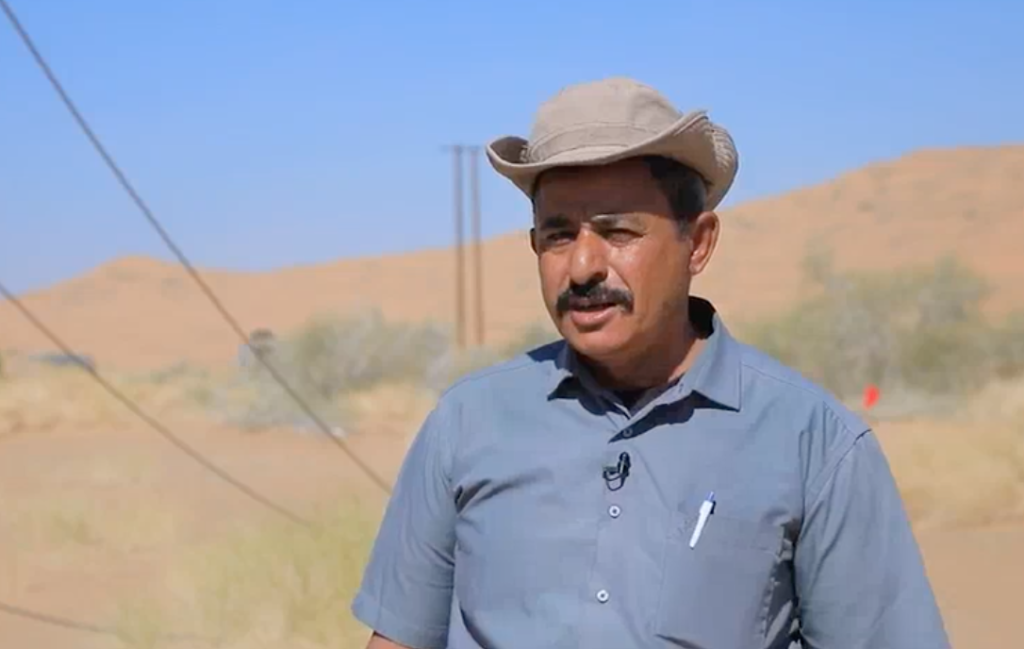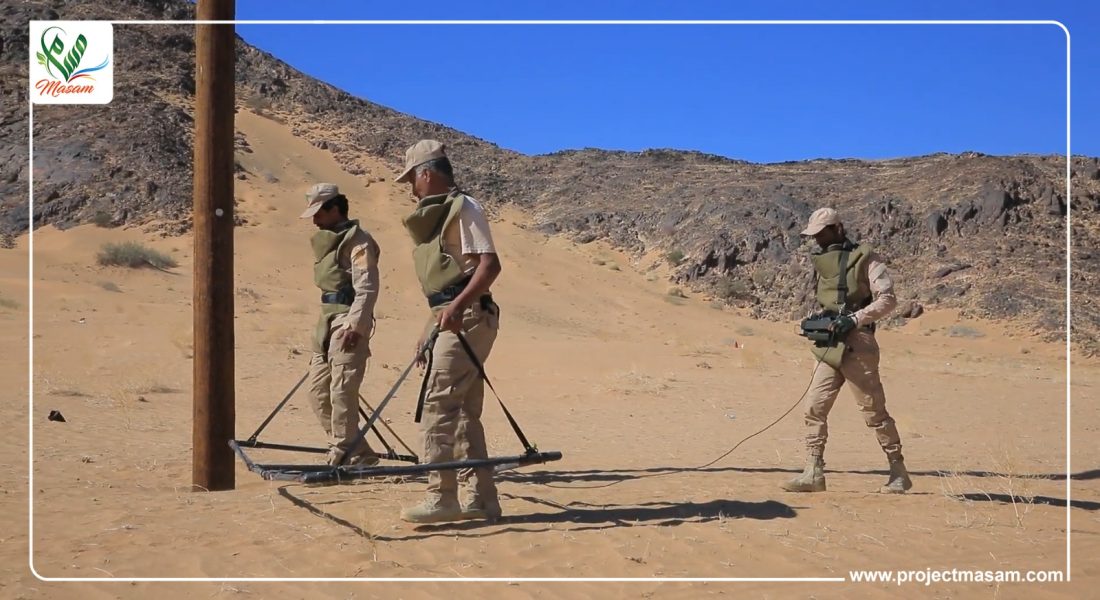Project Masam has allowed 20,000 people across five areas in Yemen’s Usaylan district in Shabwah region to access electricity after electrical services were halted due to the presence of landmines in the area.
Landmines are planted in Yemen in huge numbers, and these random, densely planted, and camouflaged devices, affect all vital sectors in the country, including electricity networks and other vital sensitive facilities. These landmines indiscriminately planted along and in the vicinity of electricity transmission lines have disrupted the operation of the electrical grid and reduced access to electricity. Residents have been left isolated from this vital service and left exposed them to the daily challenges of meeting their basic needs without power.
In the resource-rich Shabwah governorate in southern Yemen, landmines have deprived many areas in the Usaylan district of electricity services for over five years due to the stalled completion of a electricity transmission project after the Houthi militias’ planting of landmines along power transmission lines negatively impacted the lives of the local population and the development of these areas.
The lack of access to energy has impacted and at times paralysed local sectors such as healthcare, education as well as the economy. Local officials told Project Masam is is very difficult to operate hospitals efficiently, education and training opportunities have reduced, and businesses and other projects have been affected; and the long power outages continue to cause a lack of opportunities and lead to the deterioration of the economic, social, and cultural life in the affected areas.

The Director General of the Usaylan Electricity Project, Engineer Mohamed Mubarak, confirmed that the Usaylan-Jebah Electricity Project is one of the vital projects that aim to provide electrical services to more than 20,000 people in five areas of Usaylan district.
However, Mubarak said, this project was significantly disrupted by landmines planted along the electricity transmission lines by the Houthi militias, and as a result, work on the project was suspended and the provision of electricity to the affected areas was delayed.
The engineer also stressed that landmines also pose a threat to the lives of technicians and workers on the project, prevent the repair and maintenance of the electrical network, and affect the local population who suffer from electricity shortages and their negative effects on their daily lives as well as the development of the area.
In the face of this dire situation, Project Masam took the initiative to clear these areas, and the Director of the Usaylan-Jebah Electricity Project confirmed great progress has been made to deal with this urgent issue.
Surveying, clearance, and mine-disposal operations have been successfully carried out in the past two weeks, which allowed the securing of electricity transmission lines, and the return of workers able to rehabilitate the system.
The leader of Project Masam’s Team 5 and the supervisor of the Masam engineering teams in Shabwa Governorate, Abdullah Salim, stressed that the demining teams have now secured large parts of the power lines in these landmine-contaminated areas, adding that work has resumed on the electricity project, which will enable more than five area in Usaylan to access vital electricity services, including Al-Salim, Jebah, Arah and the Al-Safra areas.

The power outage problem is, sadly, only one of the many ways in which landmines continue to affect civilians in Yemen. These explosive and deadly devices pose a threat to human and animal lives, as well as the environment, in the areas in which they are indiscriminately planted. They further affect infrastructure as well as the economic and social development of all affected areas.
For the sixth consecutive year, Project Masam has been clearing Yemeni land of landmines and improvised explosive devices (IEDs) as well as unexploded ordnance, to provide safe and suitable conditions for displaced civilians to return home, and/or access vital facilities and services, and for the reconstruction and development of the damaged infrastructure and the recovery of the economy in all liberated Yemeni governorates.

